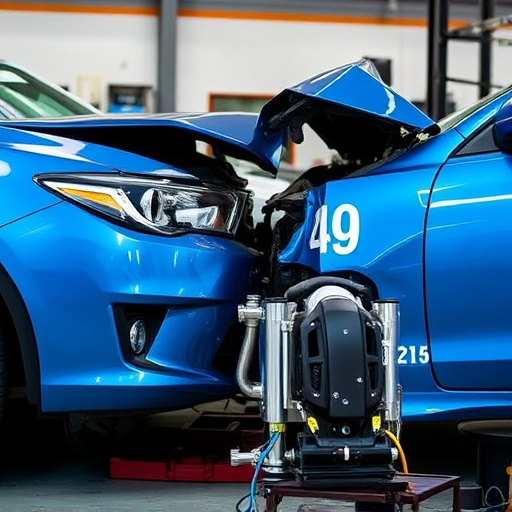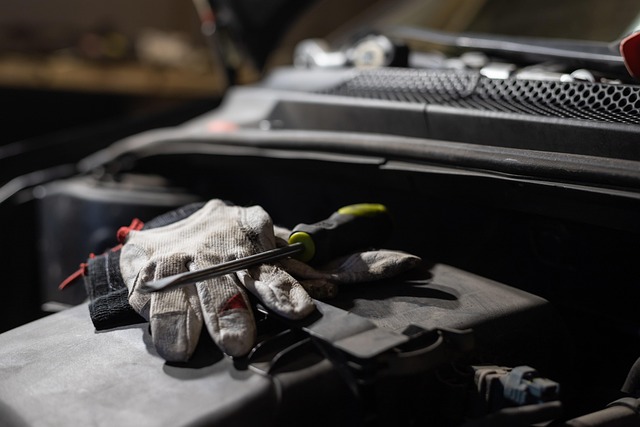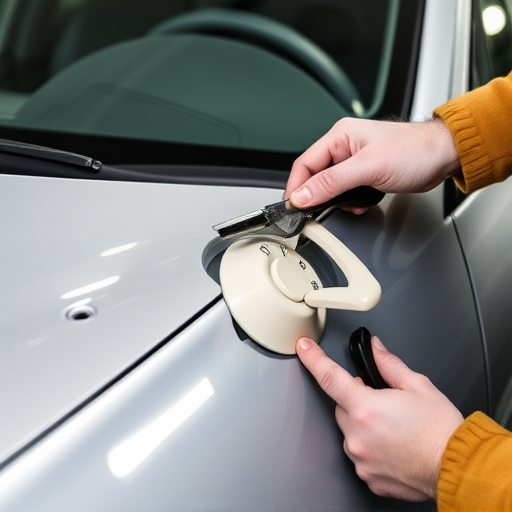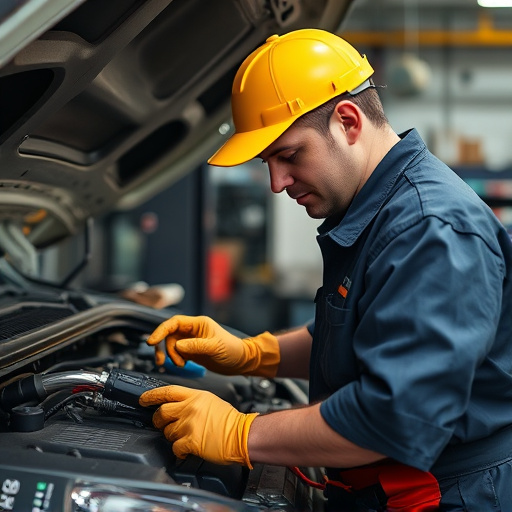The automotive industry is transitioning to eco-friendly dent repair technologies as environmental concerns rise. Startups and established companies use biodegradable materials, water-based paints, and digital imaging to reduce waste, VOCs, energy consumption, and body shop operations. These advancements minimize the ecological impact of traditional methods, contributing to a greener future in vehicle repair and promoting sustainable auto maintenance practices.
In today’s eco-conscious world, the environmental impact of various industries is a pressing concern. Among these, dent repair technologies have witnessed significant advancements towards sustainability. This article explores environmentally friendly dent repair solutions, delving into traditional methods and modern innovations that prioritize eco-friendly practices. We uncover the substantial sustainability benefits of advanced dent repair technologies, highlighting their role in mitigating ecological footprints and contributing to a greener future.
- Exploring Environmentally Friendly Dent Repair Solutions
- Traditional Methods vs. Modern Innovations in Eco-Friendly Repairs
- The Sustainability Benefits of Advanced Dent Repair Technologies
Exploring Environmentally Friendly Dent Repair Solutions

The automotive industry is witnessing a shift towards eco-friendly solutions, and dent repair technologies are no exception. As environmental concerns grow, so does the demand for sustainable alternatives in the realm of car paint repair and collision repair services. Many innovative startups and established companies are now exploring green methods to minimize the ecological footprint associated with traditional dent repair processes.
These environmentally friendly dent repair solutions offer a fresh perspective on an age-old problem. By utilizing advanced materials and techniques, such as biodegradable resins and water-based paints, these technologies aim to reduce waste, cut down on volatile organic compounds (VOCs), and lower energy consumption. Moreover, the adoption of digital imaging and precision tools allows for more accurate repairs, reducing the need for extensive body shop operations typically associated with automotive repair.
Traditional Methods vs. Modern Innovations in Eco-Friendly Repairs

In the realm of vehicle repair, dent repair technologies have undergone a remarkable metamorphosis, transitioning from traditional methods to modern innovations that prioritize environmental sustainability. Previously, autobody repairs often relied on intensive processes involving toxic chemicals and energy-intensive machinery, contributing to ecological footprints. However, contemporary dent repair technologies offer a promising game changer.
Modern innovations in eco-friendly repairs focus on utilizing sustainable materials, reducing chemical consumption, and minimizing energy usage. These advancements not only lessen the environmental impact of autobody repairs but also align with the broader trend towards green auto maintenance. As a result, “dent repair technologies” play a crucial role in shaping a more sustainable future for the automotive industry, addressing concerns about “vehicle repair” and “auto maintenance” in an environmentally conscious manner.
The Sustainability Benefits of Advanced Dent Repair Technologies

The advent of advanced dent repair technologies brings a fresh perspective to sustainability in the automotive industry. These innovative solutions offer significant environmental advantages by reducing waste and minimizing the need for extensive material replacements, which is particularly impactful in the context of car restoration processes. Traditional methods often involve substantial energy consumption and generate considerable amounts of waste, contributing to ecological concerns. However, modern dent repair technologies have emerged as a game-changer, promoting eco-friendly practices.
By employing specialized tools and techniques, these advanced systems can restore damaged vehicles to their original state with remarkable precision. This reduces the demand for new auto body repair parts, lowering the environmental footprint associated with manufacturing processes. Moreover, efficient dent removal and shaping techniques not only save resources but also contribute to a more sustainable approach in the broader automotive sector, including auto glass repair and overall car restoration practices.
As we’ve explored, the field of dent repair technologies is undergoing a significant evolution, driven by a need for more sustainable solutions. Modern innovations in eco-friendly repairs offer not only cost and time savings but also substantial environmental benefits. By adopting these advanced dent repair technologies, we can reduce waste, conserve resources, and minimize our carbon footprint. The future of dent repairs looks promising, with continued advancements promising to make our processes even more efficient and environmentally friendly.














